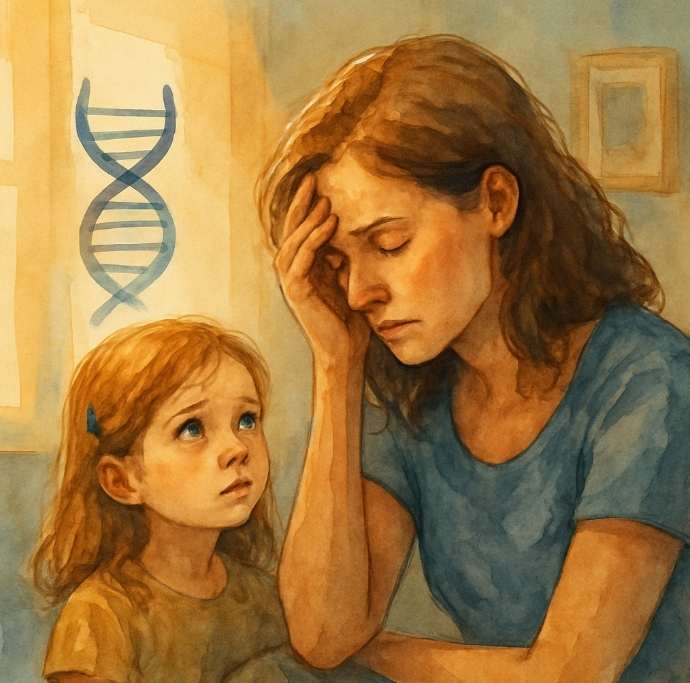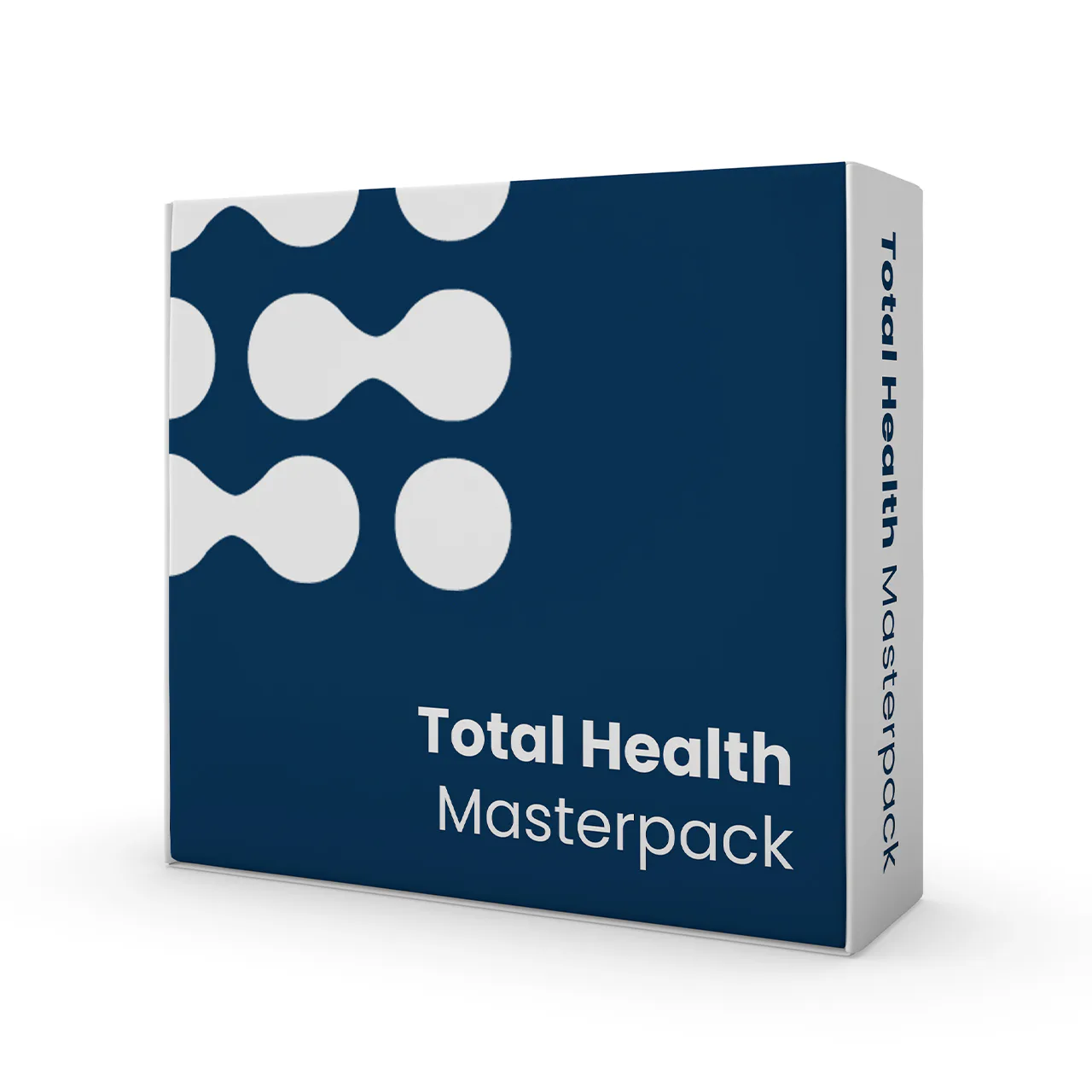Grieving Genetic Disorders: When Fate Is Written Before Birth
Grief tied to genetic disorders begins before the first steps—carrying the heartbreak of battles inherited without choice or fairness.

This post blends real grief with grounded knowledge. It isn’t clinical. It isn’t distant. It’s meant to sit beside you—not above you. The story you’ll read is meant to reflect what so many feel when living through or witnessing this condition: confusion, exhaustion, and quiet forms of courage.
If what you read feels familiar, please speak with your doctor. Your pain deserves more than silence.
We Loved Her Fiercely, Even as the Clock Started Too Soon
She looked perfect when she was born. A little small, but nothing alarming. Pink cheeks. Ten fingers. Breath that came in tiny, sacred huffs.
We didn’t know the war had already started inside her.
They told us after the heel prick, saying the words in a rush…metabolic disorder, genetic mutation, rare, inherited. They kept talking like it was a routine update. I nodded because that’s what you do when the room spins and you’re too scared to ask, “What does this mean for her life?” Because deep down, you already know. It means time is different now. It means childhood isn’t promised. It means every milestone carries a shadow.
🧠 Symptoms:
- Symptoms vary widely depending on the specific disorder but may include:
- Poor appetite or feeding difficulties
- Vomiting
- Lethargy or low energy
- Developmental delays
- Seizures
- Jaundice
- Enlarged liver or spleen
- Unusual body or urine odors
- Hypoglycemia (low blood sugar)
- Muscle weakness
Some disorders may present symptoms shortly after birth, while others may not become apparent until later in life.
We brought her home, and nothing felt safe. The formula needed to be measured perfectly. The bottles were sterilized like a ritual. We read labels like surgeons. Every food, every supplement, every ounce of care became a prayer disguised as science.
She couldn’t eat what other kids ate. Couldn’t skip meals. Couldn’t go too long without sleep or get too cold, too hot, or too excited, because her body didn’t process life the way ours did. It hoarded toxins and built up poisons that would drown her from the inside if we weren’t fast, exact, and vigilant.
We lived in a kind of holy paranoia, measuring, timing, and logging every blink. We weren’t just parents, we were caretakers of the seconds between now and not enough.
Complications:
- If left untreated, these disorders can lead to:
- Intellectual disabilities
- Organ damage
- Coma
- Death
Mayo Clinic
Early diagnosis and management are crucial to prevent or minimize complications.
Causes:
- These disorders are caused by mutations in genes that code for enzymes involved in metabolic processes. Most are inherited in an autosomal recessive pattern, meaning a child must inherit two copies of the defective gene, one from each parent, to be affected. In some cases, a single defective gene can cause the disorder.
Some days, she was just a kid. Giggling with yogurt on her chin, chasing the cat, drawing dinosaurs with too many teeth. Other days? She screamed in ways no child should have to. Clutched her stomach. Went limp. Turned gray.
The ER became familiar with us. The nurses started saying her name with that tone…the one that means they remember too much. The one that means, “This family knows.”
And through it all, we loved her fiercely…not because we were told to, but because she showed us how. She laughed when she should’ve cried. Danced in her pajamas. Made jokes about her “science food” like she wasn’t choking it down just to stay alive.
She taught us that love doesn’t fear the clock. It races it, shoving more joy into a year than most people find in a decade.
We didn’t know how long we’d get. We still don’t. But every day she wakes up, we win again. Every day she runs, sings, and builds a pillow fort, we beat the mutation.
She may have been born into a countdown, but she lives like the fuse forgot to burn.
Some children are born with an hourglass in their blood, but they teach us how to turn it over, again and again.
Risk Factors:
- Family history of metabolic disorders
- Consanguinity (parents who are closely related)
- Certain ethnic backgrounds with higher prevalence of specific disorders
- Carrier status of one or both parents
Mayo Clinic News Network
Carrier testing before pregnancy can identify some gene mutations that may increase the risk of having a child with an inherited metabolic disorder.
📘 Diagnosis & Treatment
Diagnosis:
Diagnosis often involves:
- Newborn screening tests
- Blood and urine tests to detect abnormal levels of substances
- Genetic testing to identify specific gene mutations
- Enzyme activity assays
Early detection through newborn screening programs allows for prompt intervention.
Treatment:
- Treatment strategies depend on the specific disorder and may include:
- Dietary management: Restricting or supplementing certain nutrients
- Medications: To remove toxic substances or replace deficient compounds
- Enzyme replacement therapy: Providing the missing enzyme
- Gene therapy: Experimental approaches to correct genetic defects
- Organ transplantation: In severe cases affecting specific organs
- Ongoing monitoring and adjustments are essential to manage the condition effectively.
Prevention:
While inherited metabolic disorders cannot be prevented, early detection through newborn screening and genetic counseling can help manage risks and prepare for necessary interventions.
I know this is heavy, and I understand that the road ahead may feel like a tangle of loss and unanswered questions. But please hear this: you are not broken because you are hurting; you are not weak because you are afraid. You are living through something real, and survival itself is a kind of grace. You are allowed to struggle, you are allowed to hope, and you are allowed to not have all the answers today. Whatever comes next, you do not face it empty-handed; you carry every moment of love that shaped you, and that will always be enough to keep going.
🎀 Gifts to help With Genetic Disorders
🏥 Everyday Comforts for Everyday Battles
Managing Genetic Disorders often means needing a little extra help.
Sometimes it’s about restoring dignity, ease, or simply getting through the day with less pain.
These carefully chosen tools aren’t just items; they’re small bridges back to living.
This section is about finding practical support, never shame.
Adaptive Clothing with Magnetic Closures – For Hands That Didn’t Get a Say
Many genetic disorders affect muscle tone, fine motor skills, or joint mobility. These adaptive clothes use magnetic fasteners and stretch fabrics to make dressing easier and more dignified—whether you’re doing it solo or with help. It’s not about fashion. It’s about independence, self-respect, and a body being met where it is, not where it “should” be.
🌿 Paths to Healing Beyond the Map
Sometimes traditional medicine isn’t enough.
If you’re exploring gentle, alternative options to help with Genetic Disorders,
you might find comfort in plant-based compounds like **CBD or CBG**.
*This section is not medical advice, just a door left open.*
USA Medical Total Support Pack – Gentle Reinforcement for Bodies Built Differently
Genetic disorders affect more than a single system—they ripple outward, impacting immunity, sleep, pain, and mental health. This Total Pack offers CBD, stress regulation, and systemic support for those carrying heavy blueprints. It doesn’t rewrite DNA. But it may ease the everyday burdens of living inside it.
Need a Different Path Forward?
Every journey through grief looks different. Choose the next step that speaks to where you are now:
When You're Ready to Start Healing
Healing doesn’t mean forgetting.
It means finding small ways to carry your grief with strength and grace.
These are the stories, tools, and gentle steps to begin walking forward…at your own pace.
When You're Still in the Thick of It
Sometimes healing feels like a lie.
If you’re not ready to move on…if the pain still roars louder than the world wants to hear…this is the place where you’re allowed to feel it.
No sugarcoating. No pretending. Just truth.
When You're Holding on to Who’s Still Here
Grief reminds us to love louder.
If someone you love is still with you, this is your place to celebrate them, honor them, and create new memories while there’s still time.
Joy and sorrow can live side by side.






